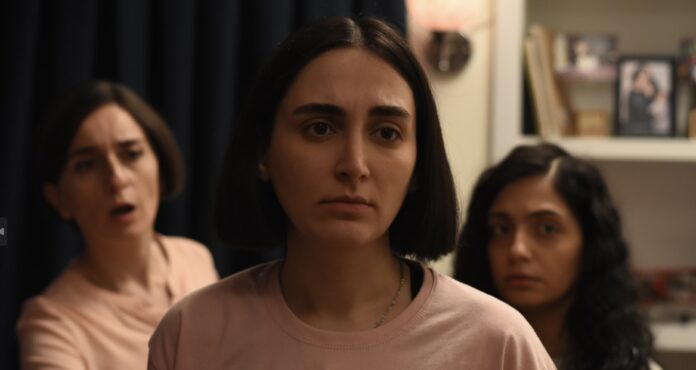One of the most starkly obvious things that happens in relatively long movies is when you can tell the filmmaker has run out of ideas. This happens about halfway into the nearly three-hour The Seed of the Sacred Fig, directed by Mohammad Rasoulof. A film that begins with the kind of political urgency and nerve-racking paranoia of Costa-Gavras’s Z (1969) seems to run out of steam when Rasoulof ditches everything he’s built up as a penetrating look at the invasive political life in Iran and turns it into what I can only describe as a pared-down remake of The Shining (1980).
The first half remains fantastic. It seems almost deliberate that Rasoulof uses generally the same nomenclature when describing his central character Iman’s (Missagh Zareh) paranoia regarding government agents, political disruptors, and foreign entities that we hear from conspiracy theorists in our government. It’s always about spies, nefarious hackers, how everyone on Earth is out to get us. Rasoulof depicts homelife within the family in acute and expressive close quarters in ways that let you feel the sense of distrust begin to tear at each person, especially the children (Mahsa Rostami and Setareh Maleki), who feel helpless as their parents become their biggest skeptics. The turning point in the film, when Iman tells his family to pack their things because their information has been leaked by protestors, is where the film also unravels in several points. The deftness with which Rasoulof is able to make the leering and crushing pressures of the regime potent and tangible dissipates. It all goes silly from there—the father loses his mind, puts his family in danger, chases them through a remote farmhouse, and eventually runs them into a maze outside. The movie becomes as lost as its characters. PG-13, 168 min.
Screened at the Chicago International Film Festival, in limited release in theaters







